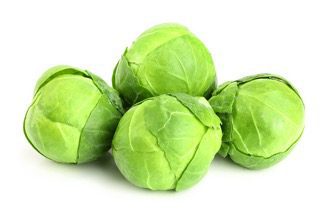

When given in moderation, Brussels sprouts are a safe and nutritious addition to a dog’s diet. These veggies contain essential nutrients such as potassium, manganese, and vitamin A. However, overfeeding can lead to flatulence and other unwanted side effects.
Brussels sprouts are packed with fiber and antioxidants that have anti-inflammatory properties, which can improve a dog’s blood circulation. Additionally, they are a rich source of vitamins A, B1, B6, C, and K, as well as potassium and manganese, all of which contribute to a dog’s overall health. The vitamins in Brussels sprouts can also boost a dog’s immune system and support healthy bones.
Improperly cooked Brussels sprouts can cause hypothyroidism in dogs. Overconsumption can result in digestive issues such as stomach upset and diarrhea. Even small amounts of Brussels sprouts can cause flatulence in dogs.
To maximize the nutritional benefits, steam Brussels sprouts before serving them to your dog. It’s important to serve them in small quantities to prevent digestive issues.
Brussels sprouts, also known as mini cabbages, are a cruciferous vegetable originally from Belgium, where they got their name. Nowadays, they are commonly grown throughout Europe and North America. These vegetables are a great source of fiber and vitamins for dogs when given in moderation. However, overfeeding can lead to digestive issues, such as flatulence and diarrhea.
Feeding your dog Brussels sprouts can improve their blood circulation and boost their immune system due to their anti-inflammatory properties and high vitamin content. However, it's important to cook them thoroughly to avoid hypothyroidism. It's also crucial to serve them in small quantities to prevent digestive issues.
If you're looking for other vegetables to add to your dog's diet, consider carrots or green beans. Both are affordable and easy to access, and they are great sources of vitamins and fiber for dogs.
Have you ever given Brussels sprouts to your furry friend? How did they react? Let's chat about it in the comments below!
Remember to always consult with your veterinarian before adding new foods into your dog's diet. And as always, give your pet a pat for us!